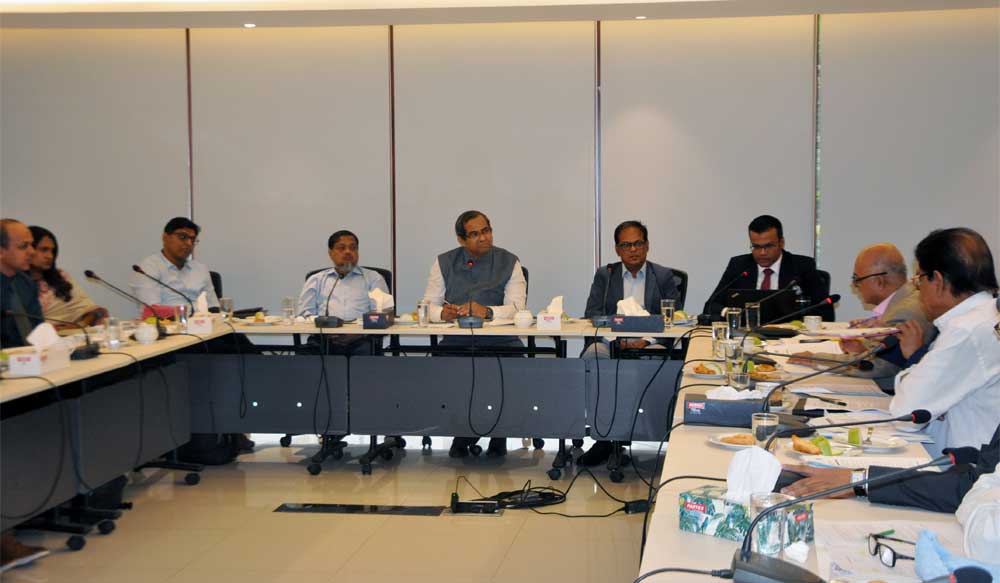
Bangladesh’s pharmaceutical industry is a crucial provider of affordable medications domestically and to other Least Developed Countries (LDCs). The industry improves healthcare outcomes by ensuring access to essential medicines at low cost and contributes significantly to the country’s exports and economic growth. It holds great promise as one of Bangladesh’s most technologically advanced industries. Despite this, the industry faces challenges, including a heavy reliance on imported Active Pharmaceutical Ingredients (APIs) and the potential impact of losing the pharmaceuticals waiver under the World Trade Organisation (WTO) Agreement on Trade-Related Aspects of Intellectual Property Rights (TRIPS). This waiver currently allows Bangladesh to produce generic versions of patented drugs, significantly reducing the cost of medications. Its withdrawal could increase production costs, affect export competitiveness, and limit the affordability of medications for low-income populations. Moreover, a few influential individuals had control over major government decisions regarding medicines and vaccines, discouraging the spirit of invention and innovation in the industry. Addressing these challenges will be essential to maintaining the industry’s positive impact on public health and economic development.
These observations emerged at the in-house dialogue ‘Technological Preparedness of Bangladesh’s Pharmaceuticals Industry: A Strategic Evaluation’ on Wednesday, 16 October 2024, organised by the Centre for Policy Dialogue (CPD) in partnership with Friedrich-Ebert-Stiftung (FES) Bangladesh. The dialogue was based on a study of Bangladesh’s pharmaceutical industry’s technological preparedness conducted by CPD.
In his introductory remarks, Dr Khondaker Golam Moazzem, Research Director of CPD, remarked ‘Bangladesh’s pharmaceutical industry is one of the most technologically advanced industries in the country. It is a crucial provider of affordable medication within Bangladesh and other LDCs, playing a vital role in global public health and contributing significantly to national economic growth.’
Mr Iqbal Hossain, Programme Coordinator at the FES Bangladesh, echoed these sentiments, stressing the potential impact of the TRIPS waiver’s expiration on medicine affordability and patent compliance.
In his keynote presentation, Mr Syed Yusuf Saadat, Research Fellow, CPD, highlighted the urgent need to strengthen R&D capabilities to create as many patented APIs as possible before Bangladesh graduates from LDC status and loses the TRIPs pharmaceutical waiver. He stressed that introducing these patented goods locally would reduce the pharmaceutical industry’s reliance on API imports and help it adapt to post-transition challenges.
Mr Saadat also highlighted the urgency of securing registration for new drugs within the next two years. This step is critical to ensure that local companies can maintain access to these drugs, as patent protections by multinational companies could limit their ability to register and produce these medicines after the transition.
He stressed the need for enriching backward integration, focusing on boosting reverse engineering skills. This would enhance the local capacity to produce complex drugs. Furthermore, he advocated for investing in regulatory approvals, which would boost exports of off-patent drugs and allow the production of patented medicines under license agreements, thereby mitigating potential losses once the production of copy versions of patented drugs is restricted.
A key takeaway from the dialogue was the need to build a skilled workforce capable of sustaining technological advancements in the pharmaceutical sector. Mr Saadat emphasised the importance of building the workforce’s capacity through an adequate pharmaceutical sciences curriculum in Bangladesh’s universities, tailored to industry needs. He also called for upscaling collaboration between firms and public sector institutions involved in research and development, teaching, and health services. Additionally, he underscored the need for increasing industry collaboration with local and foreign universities or research organisations to conduct research. Such partnerships would enhance research capabilities and foster innovation within the sector.
Mr Saadat underscored the immense potential of investing in digital tools like Artificial Intelligence (AI), data analytics, and machine learning to revolutionise medication development. These technologies can empower companies to expedite drug development, ensuring greater efficiency and competitiveness in the global market.
In the open-floor discussion, participants suggested that the pharmaceutical sector needs to be better prepared to produce biotech products, especially after the LDC graduation. They emphasised that the government and pharmaceutical companies should take the initiative to invest in APIs and introduce them to Bangladesh. Additionally, they called for increased investment in R&D, as the country is far behind the developed world in producing new chemical entities. They added that establishing fundamental laboratories for API development will be crucial for producing new chemical entities.
Participants in the dialogue called for greater government support to enable the pharmaceutical industry to thrive. Specifically, participants advocated for reducing taxes on essential materials like packaging components, promoting exports, and extending loans with favourable terms to support R&D investment.
In addition, there were calls for establishing a dedicated pharmaceutical export promotion council to boost the country’s presence in global markets. A focus on technology transfer, especially from multinational corporations, was identified as a critical strategy for fostering innovation and preparing the industry for LDC graduation.
Experts and professionals from the pharmaceutical industry, academics, development practitioners, and civil society activists attended the dialogue and shared their valuable insights.



